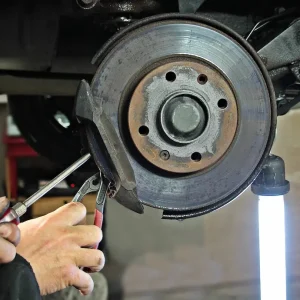Value your employees and you’ll get more from them. That’s the old adage. Yet in my experience, many vocational drivers, particularly van delivery drivers, don’t feel valued at all by their managers and this ultimately impacts the way they treat their vehicles.
And as these drivers are frequently lone workers it can result in some being largely ignored; often only being contacted in person by their boss when something goes wrong.
For the drivers who are completing their deliveries, meeting their obligations and not damaging the vehicles, this ‘focus on the bad rather than the good’ gradually takes its toll.
After all, let’s look at it this way. Surely an employee who is motivated and content will feel bad having to tell his manager that he has scratched or dented his vehicle.
However, I’ve spoken to many perfectly good, but demoralised, drivers who say they reach a point where they just can’t be bothered reporting vehicle defects or they feel no emotion when saying they’ve dented the van.
With larger companies there’s also a huge lack of accountability when a vehicle is used by many different drivers, because if a dent is spotted it could have been any one of the drivers who’d caused it, assuming checks aren’t made at the start of each shift.
But the main concern I have is this issue of ‘they don’t care about me, so why should I care about their vans’.
How do you re-motivate these drivers leading to less accidents?
Well first you need to communicate with them and that means listening to their ideas and feedback. Unfortunately some managers think the purpose of a driver’s meeting is to ‘tell’ the drivers what they expect and often grumble about where things are going wrong. I’ve attended many where managers have complained at the level of vehicle damage and have told the group that they need to ‘sort it out’ and ‘be more careful’. Does this approach work? Well, I hardly need to answer that question.
The same managers tell me that this is the only way to deal with the drivers and that all the drivers do is moan all the time – about their job, their wages, the delivery deadlines etc.
So now we have an extremely negative culture. And a lot of the damage to the vehicles has nothing to do with driving ability – it’s all down to the lack of communication leading to a ‘don’t care’ attitude.
I visited one company recently and asked the drivers when they had last had face to face meetings with their general manager and the reply from one driver was that he had never even met him having worked there for five years.
Yes he had contact with his line manager but the person ultimately responsible for the vehicle operating costs had never taken time to speak to the people taking care of those vehicles day in day out. What a surprise that they had a high incident rate.
So when it comes to accident reduction, it’s not all about sitting with drivers in the vehicle and offering them guidance. Often the root cause of accidents lies elsewhere but it can be hard to persuade some managers that ultimately they are the reason for a lot of the problems.
My tips for motivating drivers are:
(1) Hold regular meetings with drivers and remember to listen to them.
(2) Provide regular training, this doesn’t have to be expensive professional training from a fleet training company. It could be an in-house customer care course, after all it may be that your customer only ever sees your van driver, so to them he or she is the face of your company.
(3) Reward drivers, this could be financial if they reduce fuel or vehicle repair costs, or providing some form of career progression. In most jobs, employees can expect to be promoted if they do well, but drivers usually remain as drivers.
(4) Provide all the necessary equipment to do the job, I have seen some companies that ensure warehouse staff have the necessary manual handling equipment, but the drivers didn’t even get a barrow and had to carry heavy boxes, sometimes on long distances or up stairs.
(5) Remember your drivers might be out of sight, but should never be out of mind. You have a duty of care to all staff and as a manager you could face prosecution for the actions of your drivers.
Follow BusinessCar on TWITTER





